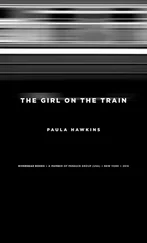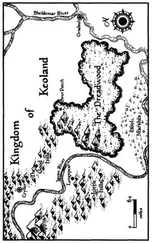I took a step away from you but you grabbed my hand and squeezed it hard. ‘Come on, Julia … Tell me honestly. Wasn’t there some part of you that liked it?’
After that, I stopped speaking to you. That, according to your daughter, was me being horrible to you . We tell our stories differently, don’t we, you and I?
I stopped talking to you, but that didn’t stop you from calling. You left strange little messages, telling me about your work or your daughter, an award you had won, an accolade received. You never said where you were or who you were with, although sometimes I heard noises in the background, music or traffic, sometimes voices. Sometimes I deleted the messages and sometimes I saved them. Sometimes I listened to them over and over, so many times that even years later I could remember your exact words.
Sometimes you were cryptic, other times angry; you repeated old insults, you dredged up long-submerged disagreements, railed against old slurs. The death wish! Once, in the heat of the moment, tired of your morbid obsessions, I’d accused you of having a death wish, and oh, how you harped on about that!
Sometimes you were maudlin, talking about our mother, our childhood, happiness had and lost. Other times you were up, happy, hyper. Come to the Mill House! you entreated me. Please come! You’ll love it. Please, Julia, it’s time we put all that stuff behind us. Don’t be stubborn. It’s time. And then I’d be furious – It’s time! Why should you get to choose when to call time on the trouble between us?
All I wanted was to be left alone, to forget Beckford, to forget you. I built a life for myself – smaller than yours, of course, how could it not be? But mine. Good friends, relationships, a tiny flat in a lovely suburb of north London. A job in social work which gave me purpose; a job which consumed me and fulfilled me, despite its low pay and long hours.
I wanted to be left alone, but you wouldn’t have it. Sometimes twice a year and sometimes twice a month, you called: disrupting, destabilizing, unsettling me. Just like you’d always done – it was a grown-up version of all the games you used to play. And all the time I waited, I waited for the one call I might actually respond to, the one where you would explain how it was that you behaved the way you did when we were young, how you could have hurt me, stood by while I was being hurt. Part of me wanted to have a conversation with you, but not before you told me that you were sorry, not before you begged for my forgiveness. But your apology never came, and I’m still waiting.
I pulled open the top drawer of the bedside table. There were postcards, blank ones – pictures of places you’d been, perhaps – condoms, lubricant, an old-fashioned silver cigarette lighter with the initials LS engraved on the side. LS . A lover? I looked around the room again and it struck me that there were no pictures of men in this house. Not up here, not downstairs. Even the paintings are almost all of women. And when you left your messages you talked of your work and the house and Lena, but you never mentioned a man. Men never seemed that important to you.
There was one though, wasn’t there? A long time ago, there was a boy who was important to you. When you were a teenager, you used to sneak out of the house at night, you’d climb out of the laundry window, drop down on to the river bank and creep around the house, up to your ankles in mud. You’d scramble up the bank and on to the lane, and he’d be waiting for you. Robbie.
Thinking of Robbie, of you and Robbie, was like going over the humpback bridge at speed: dizzying. Robbie was tall, broad and blond, his lip curled into a perpetual sneer. He had a way of looking at a girl that turned her inside out. Robbie Cannon. The alpha, the top dog, always smelling of Lynx and sex, brutish and mean. You loved him, you said, although it never looked much like love to me. You and he were either all over each other or throwing insults at each other, never anything in between. There was never any peace. I don’t remember a lot of laughter. But I did have the clearest memory of you both lying on the bank at the pool, limbs entangled, feet in the water, him rolling over you, pushing your shoulders down into the sand.
Something about that image jarred, made me feel something I hadn’t felt in a while. Shame. The dirty, secret shame of the voyeur, tinged with something else, something I couldn’t quite put my finger on and didn’t want to. I tried to turn away from it but I remembered: that wasn’t the only time I’d watched him with you.
I felt suddenly uncomfortable so I got up from your bed and paced around the room, looking at the photos. Pictures everywhere. Of course. Framed pictures of you on the chest of drawers, tanned and smiling, in Tokyo and Buenos Aires, on skiing holidays and on beaches, with your daughter in your arms. On the walls, framed prints of magazine covers you shot, a story on the front page of the New York Times , the awards you received. Here it is: all the evidence of your success, the proof that you outdid me in everything. Work, beauty, children, life. And now you’ve outdone me again. Even in this, you win.
One picture stopped me in my tracks. It was a photo of you and Lena – not a baby any longer, a little girl, maybe five or six years old, or maybe older, I can never tell children’s ages. She’s smiling, showing tiny white teeth, and there’s something strange about it, something that made my hair stand up on end; something about her eyes, the set of her face, gives her the look of a predator.
I could feel a pulse in my neck, an old fear rising. I lay back down on the bed and tried not to listen to the water, but even with the windows shut, at the top of the house, the sound was inescapable. I could feel it pushing against the walls, seeping into the cracks of the brickwork, rising. I could taste it, muddy and dirty in my mouth, and my skin felt damp.
Somewhere in the house, I could hear someone laughing, and it sounded just like you.
AUGUST 1993
Jules
MUM BOUGHT ME a new swimming costume, an old-fashioned one in blue-and-white gingham with ‘support’. It was supposed to have a kind of 1950s look to it, the sort of thing Marilyn might have worn. Fat and pale, I was no Norma Jean, but I put it on anyway because she’d gone to a lot of trouble to find it. It wasn’t easy finding swimwear for someone like me.
I put on a pair of blue shorts and an extra-large white T-shirt over the top. When Nel came down for lunch in her denim cutoffs and a halter-neck bikini, she took one look at me and said, ‘Are you coming to the river this afternoon?’ in a tone which made it obvious that she didn’t want me to, and then she caught Mum’s eye and said, ‘I’m not looking after her, OK? I’m going there to meet my friends.’
Mum said, ‘Be nice, Nel.’
Mum was in remission then, so frail a stiff breeze might knock her over, her olive skin yellowed, like old paper, and Nel and I were under strict instructions from our father to Get Along.
Part of Getting Along meant Joining In and so yes, I was going to the river. Everyone went to the river. It was all there was to do, really. Beckford wasn’t like the beach, there was no funfair, no games arcade, not so much as a mini-golf course. There was the water: that was it.
A few weeks into the summer, once routines were established, once everyone had figured out where they belonged and who they belonged with, once outsiders and locals had mingled, friendships and enmities established, people started hanging out in groups along the river bank. The younger kids tended to swim south of the Mill House, where the water moved slowly and there were fish to catch. The bad kids hung out at the Wards’ cottage, where they took drugs and had sex, played with Ouija boards and tried to conjure up angry spirits. (Nel told me that if you looked hard enough, you could still find traces of Robert Ward’s blood on the walls.) But the biggest crowd gathered at the Drowning Pool. The boys jumped off the rocks and the girls sunbathed, music played and barbecues were lit. Someone always brought beer.
Читать дальше











